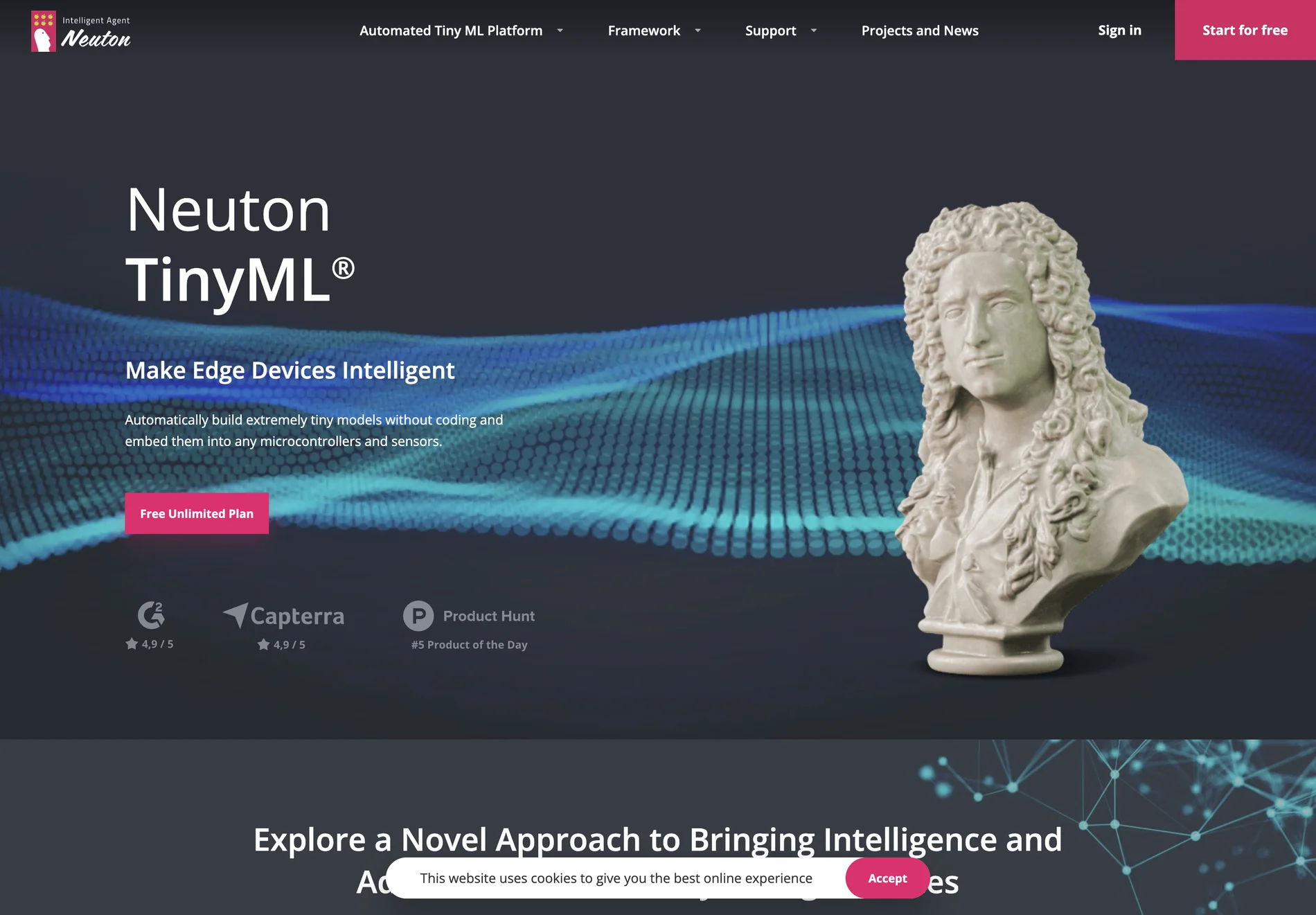Neuton TinyML: Revolutionizing Edge Intelligence with No-Code Tiny ML Models
Introduction
Neuton TinyML is a groundbreaking no-code Tiny AutoML platform designed to make edge devices intelligent. It allows users to automatically build extremely tiny machine learning models without any coding, which can be embedded into any microcontrollers and sensors. This platform is particularly beneficial for IoT devices with limited computational resources.
Key Features
- No-Code Platform: Neuton eliminates the need for coding, making machine learning accessible to everyone.
- Extremely Tiny Models: The average model size is less than 5 KB, enabling integration into even 8-bit microcontrollers.
- High Accuracy: Neuton's patented neural network framework ensures models are accurate and robust without compromising on size.
- Automated Pipeline: The platform offers a highly automated and transparent pipeline, reducing user actions required.
Use Cases
Neuton has been successfully applied in various scenarios, including:
- Smart Ring as a Remote Control: Control your TV through gestures with a smart ring.
- Hand Washing Tracking: Detect and log hand washing events to promote hygiene.
- Touch-free Interaction for Smartwatches: Enable gesture-based interactions with wearables.
- On-device Package Tracking: Recognize events during package delivery.
Comparison with Other Algorithms
Neuton's models are up to 10 times smaller than other existing algorithms while maintaining high accuracy. For instance, the Magic Wand case is 33 times faster with Neuton, and the total footprint is 14 times smaller.
Community and Projects
Neuton supports a vibrant community with numerous projects, such as:
- Activity Recognition: Control home electronics using head gestures.
- Predictive Maintenance: Ensure timely maintenance of water pumps.
- Smart Human Interfaces: Develop TinyML models for custom gesture recognition.
Conclusion
Neuton TinyML is a game-changer in the field of edge intelligence, offering a no-code solution to build tiny, accurate, and efficient machine learning models. Its ability to run on the smallest IoT devices opens up new possibilities for smart applications across various industries.

